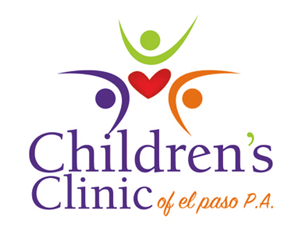Behavioral Health
If your child is struggling with behavioral issues, trust the team at Children's Clinic of El Paso, TX, for a pediatric behavioral assessment.
Dr. Patricia Azarcon Samonte and Dr. Leslie Cortes have over 25 years of experience dealing with abnormal pediatric behaviors across all age groups. They are happy to answer any questions you may have regarding behaviors and the behavioral assessment process.
Behavioral Assessment

Pediatric Wellness and Assessment Visits
What To Do After Testing
At Children's Clinic of El Paso, our pediatricians perform wellness checks. At these appointments, your pediatrician will ask about your child's behaviors and developmental milestones during these visits. There are general markers that most children achieve around the same time that show developmental progress. Our doctors will check for these and observe your child's behavior during the visit. Consistent, repeated abnormal, or delayed behaviors may warrant more intervention.
In addition to well-child checks, we perform assessment visits to asses specific behavioral concerns. These assessments help parents and our doctors pinpoint what adjustments your child needs to help them thrive.
Listed below are the different types of assessments that are available. Depending on the type of concern, Dr. Azarcon and Dr. Cortes of Children's Clinic of El Paso, TX, may administer a behavioral assessment. This assessment process involves input from you, your child's teacher, and your child's medical team. It may include:
- Child Development Inventories (CDI) - A longer yes or no questionnaire regarding your child's development consisting of three tests.
- Ages and Stages Test - Designed for ages one to five and a half months. This test focuses on growth and learned behavior with questions designed to be answered with yes, no, or not yet.
- Parents Evaluation of Developmental Status (PEDS) - PEDS is a quick test designed for parents to answer.
- Modified Checklist for Autism in Toddlers (M-CHAT) - For children aged 16–30 months, this test is a series of yes or no questions geared towards targeting the presence of Autism.
After assessment, our doctors can help you determine the next steps. These steps can involve simply monitoring behaviors over time or a more aggressive approach such as behavioral therapy, play or music therapy, and even further evaluation for medical intervention such as prescriptions.
If your child is school-aged, you can also reach out to the special education department at your child's school and schedule a meeting for in-school services if needed.
A behavioral assessment in El Paso, TX, is the best way to get answers for your child. Call Dr. Cortes and Dr. Azarcon of Children's Clinic of El Paso at (915) 592-2600 for our Eastside location or (915) 544-2225 for our Westside location to schedule.
If you have concerns about your child's behavioral development, please call our office and ask to speak to our Behavioral Health Coordinator. We will discuss your concerns and gather information that will be used to determine how we can best help your child. If a Behavioral Evaluation with one of our providers is needed, we will schedule this visit for you and provide you with assessment tools that you can complete prior to the your visit.
What to Expect
At least one week prior to your appointment, complete assigned assessments noted above. On the day of your child's behavioral evaluation, please arrive 10 minutes prior to your scheduled appointment time. Ideally, your child should eat a nutritious meal prior to the appointment and be well-rested.
You and your child will meet with a nurse. Your nurse will spend approximately 20 minutes with you obtaining pertinent medical and behavioral history. Both you and your child will then meet with the doctor who will perform a thorough assessment and develop a behavioral health management plan for your child. Our providers may recommend additional counseling to best serve your child.
If the doctor prescribes medication, he/she will want to follow up with your child within 28 days to assess your child's progress and to determine if the medication can be refilled. A patient coordinator will schedule this appointment with you before you leave the office.
Assessment tools to complete for children ages 5-12:
- Vanderbilt Assessment - Parent Initial
- Vanderbilt Assessment - Teacher Initial
- Screen for Child Anxiety Related Disorders (SCARED) - Parent
- Screen for Child Anxiety Related Disorders (SCARED) – Child
- Center for Epidemiological Studies Depression Scale for Children (CES-DC)
Assessment tools to be complete for children ages 13-18:
- Vanderbilt Assessment - Parent Initial
- Vanderbilt Assessment - Teacher Initial
- Screen for Child Anxiety Related Disorders (SCARED) - Parent
- Screen for Child Anxiety Related Disorders (SCARED) – Child
- Center for Epidemiological Studies Depression Scale for Children (CES-DC)
- Patient Health Questionnaire 9 (PHQ9)
- CRAFFT screening tool
Assessment tools used on a case by case basis include:
- Child Obsessional Compulsive Inventory- Parent and Child (CHOCI)
Completing the Assessments
- You will be directed to complete the Parent Assessments through the patient portal.
- Your child will be given a portal account so that they can complete their assessments through their private patient portal.
- You will be directed to invite your child’s teacher to complete their assessment through the patient portal as well.
Important! All Assessments must be completed before the day of your child’s appointment.
Ongoing Medication Management
After your child's initial evaluation, if medication is started, your child must be seen within 28 days in order to continue the medication. If your child is doing well with his/her medication, subsequent appointments will be scheduled every 3 months. If a medication or dosage change is needed, your child must be seen within 1 month to assess your child's progress and to determine if the medication can be refilled.

